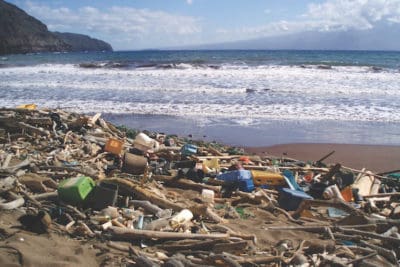
In June 2018, the World Economic Report on the state of Earth’s waters gave a stern and chilling warning that “By 2050, our oceans will contain more plastic than fish.” The report stated that plastics are now reaching critical levels in our seas, with 8 million tons of the non-biodegradable solid infesting and killing our marine resources, and that a stop to irresponsible and indiscriminate use of plastics is the only way to reverse the damage. In answer to the call for reducing the harmful effects that traditional plastics have on the environment, experts have found that hemp plastics could be a viable alternative to the oil-based scourge, offering a solution to the world’s growing problem with plastic.
Below are some of its benefits.
Hemp Plastic is Biodegradable.
Traditional plastics have been known to take long (like several centuries long) to breakdown, collecting in our oceans, rivers, and streams while wreaking havoc to the environment. As more and more of these fill our natural surroundings the need for better alternatives becomes more apparent.
One of the biggest advantages of using hemp plastic is its biodegradability. Compared to your regular plastic bag, hemp plastic only takes three to six months to degrade. This means that hemp plastic can be used as an alternative to single-use products, such as straws, and food wrappers.

Hemp Plastic Manufacturing is Safer for the Environment.
Another advantage that hemp plastic has over traditional plastics is the low-impact its manufacturing process has on the environment. Most plastics today are manufactured from fossil fuels derived from fracking, a process wherein rocks found deep beneath the Earth’s crust are broken using high-pressure liquids. This method of extracting petroleum pollutes the air and taints both the ground soil and water supply, leaving harmful toxins that can cause disease and illnesses in both humans and wildlife.
Since hemp plastic is not made from mined sources of fuel, it doesn’t have the impact that traditional plastics have on the environment.
Hemp is an Exceptional Raw Material for Making Plastic
On top of being a better choice as far as the environment is concerned, plastics created from hemp appear to have superior quality compared to its oil-based counterparts. Plastics need to be structurally strong, and where better to get their strength that from a component called cellulose, an organic substance found in the cell walls of plants. Hemp’s high concentrations of cellulose make it an ideal alternative source for raw materials that can be used in making plastics, second only to cotton and wood following at a close third.
Among the three, Hemp turns out to be the best option as it has relatively good concentrations of cellulose (between 65% and 75% of its composition) and has the least effect on the environment. On average, cellulose makes up about 40% of wood’s composition, the lowest among all three, making it the least viable source for the raw material. Cotton, on the other hand, has the highest concentration, with cellulose making up around 90% of its composition.
However, despite it being the richest source for cellulose, cultivating cotton would require 50% more water compared to hemp. Processing it would also need 400% more water than what it takes to process hemp, which means that using cotton impacts the environment far greater than using hemp, making hemp the best choice among the three.
No one said that fighting pollution was easy, but thanks to discoveries like these, we can be more creative in our battle to save our environment.
What are your thoughts? Please comment below and share this news!
True Activist / Report a typo


